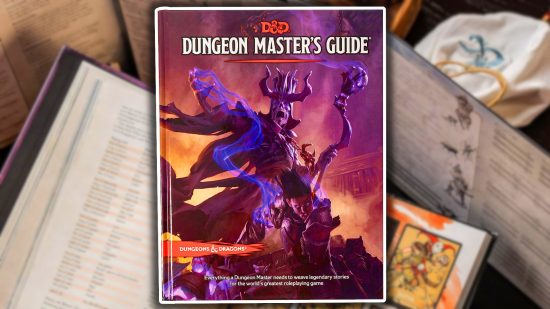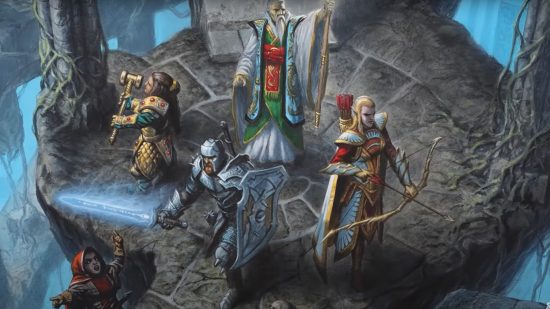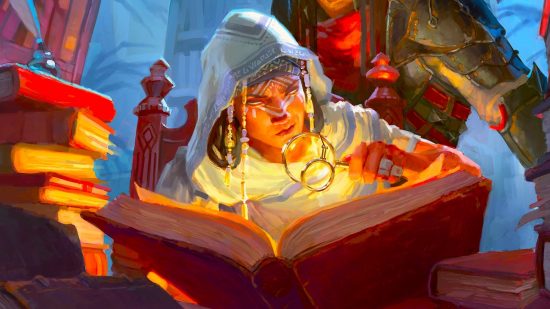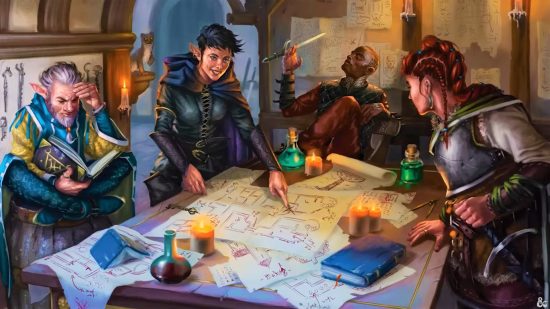There will always be more Dungeons and Dragons players than Dungeon Masters – that’s just basic math. For every three to six players rolling dice and building characters, there needs to be a lone figure bringing the world around them to life. The life of a DM can be lonely, but it’s one of the most fulfilling ways to play. A shame, then, that so few D&D newbies are willing to give it a try.
On the surface, Dungeons and Dragons is bigger than ever. Media like Stranger Things, Baldur’s Gate 3, and the Honor Among Thieves movie keep the tabletop RPG fresh in the public consciousness, and the continued popularity of D&D streams like Critical Role makes it easier than ever to access the game. Behind the scenes, the game is looking pretty healthy too – with steady profits shown in Hasbro’s financial results.
The result of this is an influx of new players. More people than ever want to give DnD dice rolling a go. But the increase in new DMs appears less dramatic. There are plenty of online individuals offering their Dungeon Mastering services, but just as many posts involve a group of players looking for a DM to run the show.
This is great news for the increasing number of DMs charging $10 per head to run a game. But beginners on a budget are ignoring an obvious solution here – learn to DM yourself.
Yes, it can be intimidating to take on such a role. Your workload is higher than any other player’s. If you’re all new to the game, others will look to you to remember the rules. DMing demands some very different skills to playing – ones that involve keeping secrets, telling stories, and managing a table of excitable players who want to talk all the time (or not at all).
Plus, in a world that spotlights professional DMs on high-production Twitch streams, the pressure is higher than ever. There isn’t much D&D media that shows a nervous newbie how forgiving the game and its community can actually be.
I understand that fear better than most – I lived it. For eight years, I played Dungeons and Dragons without ever sitting behind a DM screen. There were many excuses in my catalog (“My friends have been doing it so much longer, and they do it so much better”), but they all boiled down to performance anxiety.
Things are different now. I took the plunge with a DnD one shot or two, and these eventually grew into full-fledged DnD campaigns. I love to play, but Dungeon Mastering holds a larger piece of my heart now. That secretive screen has so much joy behind it, that I’ve kicked myself for not starting my DM journey sooner.
You’re free to roleplay as many characters as you like, each with a different story to tell. The prep work can be as much or as little as you please, with heaps of pre-written adventures out there if you don’t like the sound of complete creative control over the story. You can tailor the game to your own personal passions and the in-jokes of your friends.
Even when you’re the only one who knows what’s coming next, there’s no way to predict how an encounter will go. Half the joy of DMing is anticipating your players’ moves and then being surprised at their creative takes on your scenarios. DMing lets you truly make Dungeons and Dragons your own, and it’s one of the best ways to play.

If you’re in a DM-less group of friends and desperately want to play Dungeons and Dragons, my best piece of advice is a harsh one (though very headline-friendly). Get over yourself.
When you run D&D for your friends, no one minds if you’re nervous. Most won’t notice if you’ve made a mistake. Nobody expects you to remember all the rules all the time. There are plenty of tips for how to be a DM on the internet, and the community is (mostly) kind and helpful.
You’re not alone. And as our nerdy friend Matthew Lillard recently told me, there is no wrong way to play D&D. Put those DnD classes and DnD races down, and give DMing a try – you might surprise yourself.



